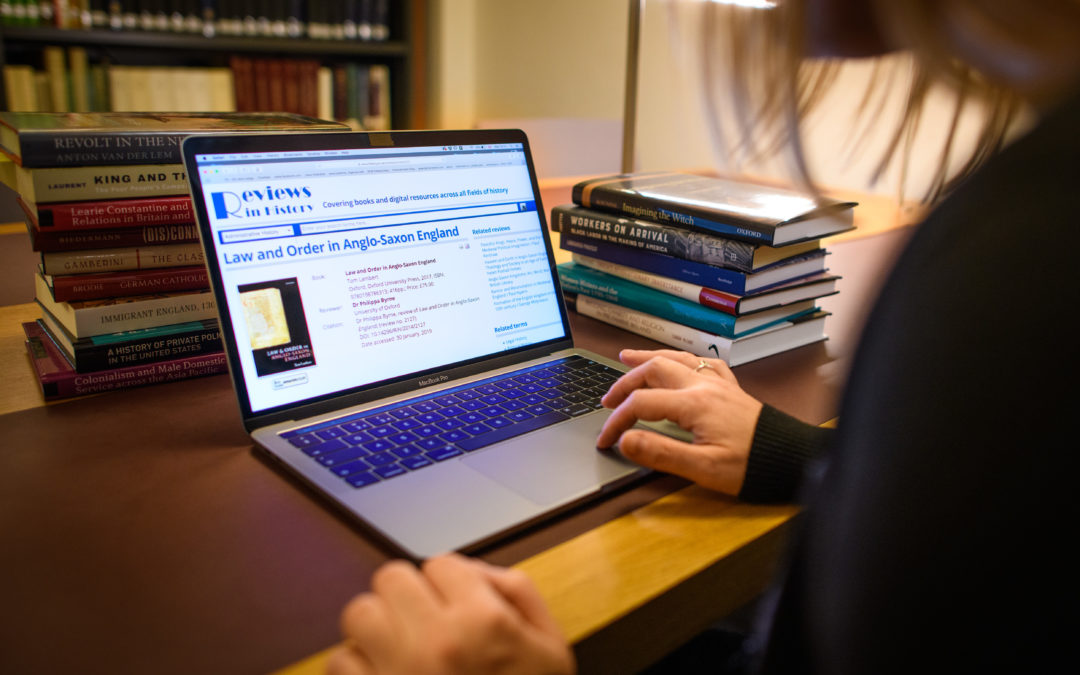Following the closure of the IHR’s premises last week, Institute staff are thinking through how best to support the historical community in the coming weeks. All at the IHR seek to maintain as many of our services and resources as we can.
This post sets out initial ideas and aims. There’ll be further updates at regular intervals — as plans are realised, and new suggestions are received from you. Last week was about having to close temporarily the IHR building. This week the Institute re-opens, and begins new ways of working, through its extensive online resources, digital reach and networks.
We know that this is a difficult time for everyone.
Like so many public venues, the IHR’s premises in London are currently closed. This means we temporarily cannot hold events, host seminars, or offer training. Nor can our library resources be consulted on site.
In the week prior to the closure, IHR staff made careful plans to carry on away from their offices. We’re all now working from home and keen to maintain as many of our services and resources as possible in the coming period. While some of the activities that take place in the IHR building are currently on hold, we — and the Institute — remain here for the communities we serve.
We’ve long held that the IHR is much more than its physical premises and its onsite activities and events. And now, more than ever, is the time for this virtual, collegial and international IHR.
So over the coming months, we’ll be bringing us all together, wherever we are, to talk about history; to talk about research, and its challenges when so many of our archives and libraries are closed; and to provide companionship for our fellow historians in isolation.
We are currently working on a programme of remote events and panels for the spring and summer. We’ll be running Twitter Q&As with guest historians on their research, and on how best to research during a time of lockdown. We will draw regularly on our collection of event podcasts that capture previous debates and discussions held at the Institute.
We’ll also be commissioning and adding more content to the IHR blog ‘On History’. This will include both updates on new things we’re doing at the Institute, and contributions from historians worldwide about their work and interests.
We know too that the IHR is an important meeting place for many people, and we’re very aware that opportunities for staying in touch and getting together will be important. With our physical spaces currently inaccessible, we’ll be doing this online.
We’ll therefore be opening the ‘virtual IHR tea room’ once a week for us all to come together to socialise and chat (albeit without our jacket potatoes!). And we’ll be asking you to help keep resources like Reviews in History primed with new recommendations, comment and opinion at a time when we can’t post out books to reviewers.
We encourage you to check the IHR website for the latest initiatives and events and to follow us on Twitter (@ihr_history) and use the hashtag #VirtualIHR to make connections. As well as Twitter and the IHR blog, you can also keep in touch via Instagram and Facebook.
We very much hope these online arenas will serve as meeting places for historians in the coming weeks. At the same time, we’re devising other means to keep in regular touch with, and support, Institute users who don’t use digital forms of communication.
We’re very aware that the closure of libraries, archives and other collection sites places great demands on the research community, especially students, early career researchers and others working to deadlines.
The IHR is the creator of, and home to, a range of online research resources — and we’ll shortly be sharing a listing of these sites, activities, projects and data sets. In addition, our Library team will be offering advice on and help with a wide range of online research services of use to historians.
We’re also soon to make all transcribed content on British History Online (BHO) freely available, for individual users, until 31 July 2020. BHO is a digital collection of 1300 volumes of primary and secondary historical materials, covering Britain, Ireland and the British world from early medieval to the modern period. We hope this will be helpful at a time when so many physical collections are unavailable. Please do feel free to use and promote.
Lastly, we also welcome your suggestions for how best we at the Institute — and all of us — can best help the historical community. Do get in touch with your ideas as to what you’d like to see, and we’ll do our very best.
Let’s keep talking history and support one another in challenging times.
With best wishes,

